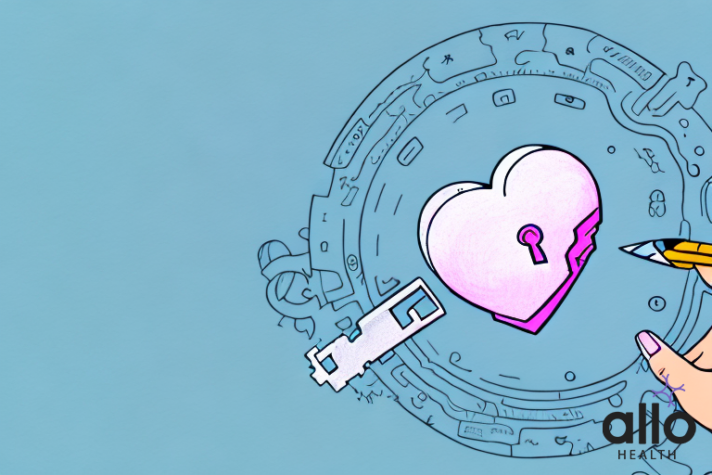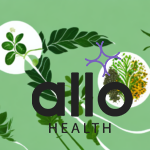What Is The Love Hormone?

Allo Health is dedicated to personalized well-being, offering support and trusted information tailored to individual health goals. The platform emphasizes human-generated content, led by a distinguished medical team of experts, including physicians and sexual health specialists. Their commitment to credibility involves rigorous fact-checking, authoritative research, and continuous updates to ensure accurate, up-to-date information. Allo Health's unique approach goes beyond conventional platforms, providing expert-led insights and a continuous commitment to excellence, with user feedback playing a crucial role in shaping the platform's authoritative voice.

Dr. Aditi completed her undergraduate medical education at AJIMS, Mangalore, after which she worked in multi-speciality hospitals with COVID patients and in the Pain and Palliative medicine department. Driven by her experiences, she developed a keen interest in psychiatry. Dr. Aditi believes that mental health is just as, if not more important, than physical health.
Why This Was Upated?
Our experts continually monitor the health and wellness space, and we update our articles when new information became available.
Updated on 08 June, 2024
- Article was updated as part of our commitment to diversity, equity, and inclusion.

"The following blog article provides general information and insights on various topics. However, it is important to note that the information presented is not intended as professional advice in any specific field or area. The content of this blog is for general educational and informational purposes only.
Book consultation
The content should not be interpreted as endorsement, recommendation, or guarantee of any product, service, or information mentioned. Readers are solely responsible for the decisions and actions they take based on the information provided in this blog. It is essential to exercise individual judgment, critical thinking, and personal responsibility when applying or implementing any information or suggestions discussed in the blog."
When we think of love, we often imagine that warm, fuzzy feeling we get when we are with the people we care about. But did you know that there is actually a hormone responsible for this feeling? Oxytocin, commonly known as the ‘love hormone’, plays a crucial role in our ability to bond and connect with others. Let’s talk about the basics before we get into the details!
What Is Oxytocin?
Oxytocin is a hormone and neurotransmitter that plays a crucial role in various physiological and behavioral processes in both humans and animals. It is often called the “love hormone,” “bonding hormone,” or “cuddle hormone” due to its role in social bonding, attachment, and trust. Oxytocin is produced in the hypothalamus, a region of the brain, and is released into the bloodstream by the pituitary gland.
- Chemical Structure: Oxytocin is a peptide hormone, meaning it is composed of amino acids. Specifically, it consists of nine amino acids in a specific sequence: cysteine, tyrosine, isoleucine, glutamine, asparagine, cysteine, proline, leucine, and glycine. The chemical formula is C43H66N12O12S2.
- Production and Release: Oxytocin is synthesized in the hypothalamus, particularly in the paraventricular nucleus (PVN) and supraoptic nucleus (SON). From there, it travels down the nerve fibers of the hypothalamo-hypophyseal tract to the posterior pituitary gland, where it is stored. In response to certain stimuli, such as emotional experiences or physical touch, oxytocin is released into the bloodstream and exerts its effects throughout the body.
- Role in Reproduction and Childbirth: Oxytocin plays a significant role in female reproductive physiology. During childbirth, it acts as a uterine stimulant, promoting contractions and helping to facilitate labor. Additionally, oxytocin is involved in milk ejection during breastfeeding, as it causes the muscles surrounding the milk ducts to contract.
- Bonding and Social Behavior: Oxytocin is closely linked to social bonding and affiliation. Research has shown that it increases trust and cooperation between people, promotes prosocial behavior, and fosters bonding in various social relationships, including romantic partnerships, parent-child relationships, and friendships.
- Stress and Anxiety Regulation: Oxytocin has been found to have anxiolytic (anxiety-reducing) effects and may help in reducing stress and promoting relaxation. It can counteract the activity of the body’s stress response system, the hypothalamic-pituitary-adrenal (HPA) axis, by inhibiting the release of stress hormones like cortisol.
- Sexual Behavior: Oxytocin is involved in sexual activity and has been linked to sexual arousal and orgasm. It is released during intimate physical contact, such as hugging and sexual activity, and may enhance the feelings of pleasure and emotional connection associated with these experiences.
- Parental Bonding: Oxytocin plays a critical role in promoting parental behavior, especially in mothers. It facilitates the formation of a strong bond between mothers and their infants, which is essential for the infant’s development and well-being.
- Therapeutic Applications: Due to its role in promoting bonding, trust, and reducing stress, oxytocin has been investigated for its potential therapeutic applications. Some studies have explored its use in treating conditions like social anxiety, autism spectrum disorders, and improving social cognition in certain populations.
Why Is Oxytocin Called The Love Hormone?
The nickname “love hormone” primarily stems from the hormone’s role in facilitating social bonding, trust, and affectionate behaviors among people. Here are the key reasons why oxytocin has earned this affectionate nickname:
- Bonding and Social Attachment: Oxytocin plays a crucial role in promoting social bonding between people. When released during positive social interactions, such as hugging, touching, or cuddling, oxytocin fosters feelings of closeness and emotional connection. This bond-forming effect is often associated with feelings of love, trust, and attachment.
- Parent-Child Bonding: Oxytocin is involved in the formation of strong emotional bonds between parents, particularly mothers, and their children. During childbirth, oxytocin helps facilitate the mother-infant bond, promoting nurturing behaviors and a strong sense of attachment between the mother and her baby. It continues to play a role in promoting maternal care and parental bonding during the early stages of parenting.
- Romantic Relationships: Oxytocin is implicated in romantic relationships. Increased levels of oxytocin have been observed in people who are in the early stages of romantic attraction or infatuation. It is believed that oxytocin may contribute to the feelings of butterflies and emotional closeness experienced in the early stages of falling in love.
- Enhancement of Social Cognition: Oxytocin has been found to influence social cognition, which is to the mental processes involved in understanding and interacting with others. It enhances the ability to recognize social cues, emotions, and facial expressions, making it easier for people to empathize with others and form strong emotional connections.
- Trust and Cooperation: Oxytocin is known to increase trust and cooperation between people. Research has shown that when oxytocin levels are elevated, people tend to be more trusting and more willing to engage in prosocial behaviors, such as sharing and cooperation. This pro-social behavior is often associated with feelings of love and compassion.
- Reduction of Stress and Anxiety: Oxytocin has anxiolytic (anxiety-reducing) effects, and it can counteract the activity of the body’s stress response system. When stress levels are reduced, people may feel more relaxed and open to forming emotional connections, contributing to the perception of being in a loving or caring environment.
Frequently Asked Questions
(1) How does oxytocin influence social bonding?
Oxytocin facilitates social bonding by increasing feelings of trust and cooperation between people. When released during positive social interactions, such as hugging or touching, oxytocin fosters emotional connections and attachment. It enhances social cognition, making it easier to recognize social cues and emotions, leading to better empathetic responses and stronger social bonds.
(2) Can oxytocin enhance romantic relationships?
Yes, oxytocin can influence romantic relationships. Increased oxytocin levels have been observed in people experiencing early-stage romantic attraction or infatuation. It contributes to the feelings of closeness and emotional bonding commonly associated with falling in love. Oxytocin is just one factor in complex romantic relationships, and its effects may vary between people.
(3) Is oxytocin only related to positive emotions?
While oxytocin is often associated with positive emotions like love, trust, and affection, its effects are more nuanced. Oxytocin can influence both positive and negative behaviors and emotions, depending on the context and individual differences. For example, it can also promote feelings of jealousy and possessiveness in certain situations.
(4) What are the therapeutic implications of oxytocin?
Oxytocin’s role in promoting bonding, reducing stress, and enhancing social connections has led to research exploring its therapeutic applications. Some studies have investigated its potential use in treating conditions like social anxiety and autism spectrum disorders. Further research is needed to fully understand its therapeutic potential and possible side effects before widespread clinical use.
(5) Does oxytocin only apply to romantic relationships?
No, oxytocin’s influence extends beyond romantic relationships. While it does play a role in early-stage romantic attraction, oxytocin is involved in various social bonds, including parent-child relationships, friendships, and even interactions with strangers. It promotes trust, empathy, and cooperation in many social contexts, contributing to a sense of closeness and connectedness.
(6) Can oxytocin be artificially administered?
Yes, oxytocin can be administered artificially in the form of nasal sprays or injections. Some studies have explored the effects of intranasal oxytocin administration on social behaviors and emotional responses. The use of oxytocin as a “love drug” or to enhance social interactions is a complex ethical concern, and more research is needed to understand its long-term effects and potential risks.
(7) Can oxytocin influence behaviors related to parenting?
Absolutely. Oxytocin plays a vital role in maternal bonding and maternal care. During childbirth, oxytocin helps facilitate labor contractions and promotes the formation of a strong emotional bond between a mother and her baby. It continues to influence parental behaviors, such as nurturing and caregiving, throughout the early stages of parenting.
(8) Does oxytocin have any impact on stress reduction?
Yes, oxytocin has been found to have anxiolytic (anxiety-reducing) effects. It can inhibit the activity of the body’s stress response system, leading to reduced stress and relaxation. This effect may be particularly important in promoting positive social interactions, as lower stress levels can create a more conducive environment for forming emotional connections.
(9) Can oxytocin affect social behavior differently in men and women?
Research suggests that oxytocin may influence social behavior differently in men and women. Some studies have shown that oxytocin can enhance social cognition and empathy more in women than in men. The effects can be complex and context-dependent. Individual differences, hormonal fluctuations, and social factors may also contribute to varying responses to oxytocin between genders. More research is needed to fully understand the gender-specific effects of oxytocin on social behavior.






































